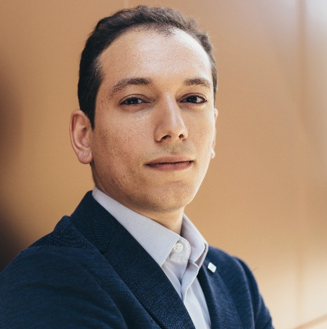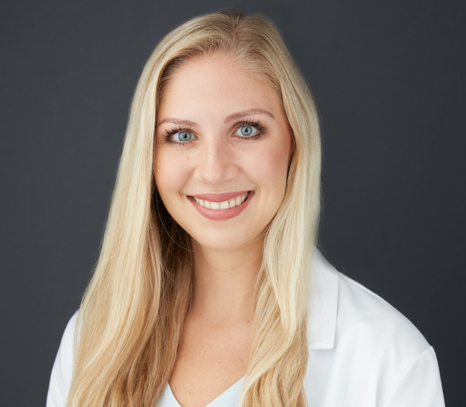Into the MiNDS of Our Alumni
Author:Shawna Thompson
Have you ever considered applying to medical school or pursuing a postdoctoral fellowship after you complete your degree in the Neuroscience Graduate Program? Dr. Rebecca Wetzel and Dr. Rober Boshra give us the scoop on their lives and careers as program alumni in this issue, providing some insight on the endless possibilities after graduation.
1. Rober Boshra, PhD

Q: What is your current position? Can you give us a brief description of things you might do on a daily basis as part of your job?
I am currently a postdoctoral fellow at the Princeton Neuroscience Institute (Princeton, NJ, USA). I am working on answering questions about cognition (primarily attention and memory) using intracranial electrophysiology in awake macaque monkeys as they do complex tasks. Research with these animals has been fascinating and, in many respects, occupies most of my time besides the typical meetings, data analysis, and reading. To get them ready for recording they need to be trained on their task and, unlike human subjects who tend to pick things up within one session, it takes months to get the animals to be real experts at the task. This involves many negotiations involving apple juice, marshmallows, and bananas. Beside training days, there are MRI scans, surgeries, and all sorts of crazy unforeseen events. Nowadays, I am really excited for a ramp-up in the summer where we'll be doing simultaneous recordings from 3 brain areas to look at how the brain interleaves visual processing and eye movements during attention, and how the thalamus could be a direct influence on these dynamically changing nodes in the cortex.
Q: How have you had to adapt during the COVID-19 pandemic, and what do you like to do in your time off or for self-care?
COVID-19 hit people differently. For many, it brought their entire work to a complete halt in addition to constant pressures on health and safety of family and friends. I count myself among the more fortunate in this crazy period. I moved to my new position during the pandemic and had to navigate a new job and country mostly over phone, email, and Zoom. If there was one unifying theme in the pandemic, it was to try and capitalize on this opportunity to try new things (and to return to old hobbies). I spent some time oil painting (after dozens of Bob Ross episodes), got back into chess, and started running (training for a half marathon in November). Last but not least, I got a pizza stone and, for a few weeks, I fulfilled childhood dreams of eating pizza every day. Doing new things has truly been the crux of my self-care. Of course, nothing is able to fully beat the quarantine fatigue, but it was a much-needed drive to not be overrun by work and/or worry.
Q: What were your favourite parts of graduate school at McMaster?
Graduate school at Mac was an amazing time of my life despite many challenges that came along the way, so it's hard to pick a favorite part. One aspect was definitely the community of fellow grad students (starting with our post-Neuro 700 Phoenix get togethers!). I consider myself very fortunate to have met many people from many different disciplines that shaped the way I think about science; be that over crazy discussions by whiteboards or over a beer at the Phoenix. The sense of camaraderie in both celebrating successes and the "we are in it together" attitude after the occasional paper or grant rejection could not have been better. My second favourite is a tie between the day I received my first acceptance of a first authorship paper, a thrill that is unlike any other, and convocation day, getting into the regalia and officially putting a bow on the entire experience at Mac!
Q: If you could go back to your time in the Neuroscience Graduate Program at McMaster, would you do anything differently? What advice would you give to current graduate students interested in following a similar career path?
A common answer that is very important is proper self-care and mental health, which I am sure others will get into. Instead, I'll go for my second one. I would try and get comfortable with asking silly questions more and not be self-conscious about sounding green about a topic. I think it would have helped me learn a lot more quickly, especially with having no neuroscience background when I first started in Neuro 700.
In terms of advice, I'll go with a rather general one first. If it's the 2nd-3rd year of grad school and you aren't able to have fun and enjoy your day-to-day research in a manner that gets you past the lows (which are integral to the experience - I might even say it makes the successes all the more impactful), it is a good time to speak with your supervisor/mentor/friend and see how you can turn things around. Don't let yourself be miserable just because there's only "x more years left". For grads aiming to go along a similar path, I would recommend 3 things:
1. Focus on computational skills. It is now more than ever considered a basic skill and being able to navigate around processing lots and lots of data by writing code is very important to be considered competitive.
2. Teamwork and collaboration are cornerstones of science in my opinion. Active involvement with other students, postdocs and PIs other than your own supervisor can be very helpful in getting you exposed to new ideas and expertise. Not only will you be more productive in terms of academic output, it also gets you to learn so many nuances about working in larger groups, which I consider vital whether in academic or industry paths.
3. Seek out opportunities and grant applications that may get you closer with groups you think would be good for your career (your supervisor should be able to help there). Yes, applications are a lot of work, but when they work out, they get you extra money and are extremely valuable for your CV after you graduate- especially for the academic route and applications to NSERC or CIHR.
Q: Have you discovered any career paths for neuroscience graduate students that you might not have been aware of earlier in your career?
The neurotech industry is going strong at the moment and I think, in many respects, there exist positions for neuroscience graduates in industry either from a research and development perspective or with more involvement on the management side. I am personally more familiar with the computational side and know that biosignal processing is still sought after with many skills that translate even if the biosignals don't necessarily originate from the brain. Research coordination jobs are also an interesting path, especially for graduates that had first-hand experience working with human subjects at the hospital. Although less abundant, there are also interesting positions that deal with public policy. I know little about the specifics, but it always struck me as a unique career path! My recommendation is to try and get a position with industry prior to graduating, especially for a PhD, if that is a possibility with the supervisor (e.g., Mitacs and if there is a replacement for the NSERC ENGAGE). There are many positives and negatives about industry and it is a big help to get a feel for it before being thrust into it with a degree and no practical expectations.
2. Rebecca Wetzel, MSc., MD

Q: What is your current position? Can you give us a brief description of things you might do on a daily basis as part of your job?
I am currently a PGY-1 (Intern) Resident Physician at the University of Massachusetts Baystate Medical Center, Psychiatry Residency Program in Springfield, Massachusetts. In terms of background, I graduated in 2014 with a degree in life sciences and a minor in psychology from McMaster. I then completed a master’s in neuroscience through the MiNDS program, during which time I worked alongside a child and adolescent psychiatrist at the Anxiety Treatment and Research Clinic within St. Joseph’s Healthcare Hamilton. It was during this time that my intention to become a psychiatrist was clearly solidified. I then pursued medical school at St. George’s Hospital Medical School at the University of London and started a residency in psychiatry in July 2020. As a first-year resident, I spent half the year in psychiatry and the other half of the year in medicine rotations. The first year of training consisted of 3 months of inpatient psychiatry, 1 month of addictions psychiatry, 1 month of consultation-liaison psychiatry, 1 month of geriatric psychiatry, 3 months of internal medicine, 2 months of neurology, and 1 month of emergency medicine. What I love most about my job is that I get to work as a team member every single day, collaborating with colleagues, patients, their families, residents, and attendings. Furthermore, being able to intertwine neuroscience with psychosocial sciences is what I have been living and learning for the past 10 years and my graduate studies in the MiNDS program was a fantastic foundation.
Q: How have you had to adapt during the COVID-19 pandemic, and what do you like to do in your time off or for self-care?
Starting residency amid a global pandemic was pretty daunting and being away from my family during this time made it even more challenging. Learning to care for COVID-19 patients was a large part of my intern year on medicine rotations. From a psychiatric perspective, I have also seen first-hand some of the neuropsychiatric after-effects of COVID-19. In terms of self-care, I enjoy staying active and getting outdoors. Much of my time in New England has been spent on the slopes of any ski mountain I can find!
Q: What were your favourite parts of graduate school at McMaster?
I really loved living in Hamilton. It has so much to offer, such as the more than 100 waterfalls to explore located within the city limits! In terms of graduate studies, the MiNDS program offers the opportunity to carve your own research path in a collaborative environment with incredible faculty facilitation. McMaster’s problem-based, student centered approach to learning truly resonated with me. In fact, McMaster’s learning model greatly influenced my choice of medical school, as I knew I wanted a program that offered a problem-based learning curriculum, which is a more hands-on approach to learning medicine in which clinical cases are used to help students identify their own learning needs.
Q: If you could go back to your time in the Neuroscience Graduate Program at McMaster, would you do anything differently? What advice would you give to current graduate students interested in following a similar career path?
I wouldn’t do anything differently! My greatest piece of advice would be to choose a research project that inspires you. I have always been drawn towards people-oriented aspects of medicine, so I was thrilled that I had the opportunity to work with children and adolescents during my graduate studies. I realized that I really enjoy working interpersonally with children and their families and it sparked my interest in in pursuing a fellowship in child and adolescent psychiatry following residency.
Q: Have you discovered any career paths for neuroscience graduate students that you might not have been aware of earlier in your career?
Absolutely! The skills you acquire during your graduate studies in neuroscience at McMaster are transferable to pretty much any field. I would encourage current graduate students to reach out to faculty and alumni to see what’s out there! My MiNDS supervisor provided an incredible amount of support guidance throughout my graduate studies and greatly influenced my career aspirations.